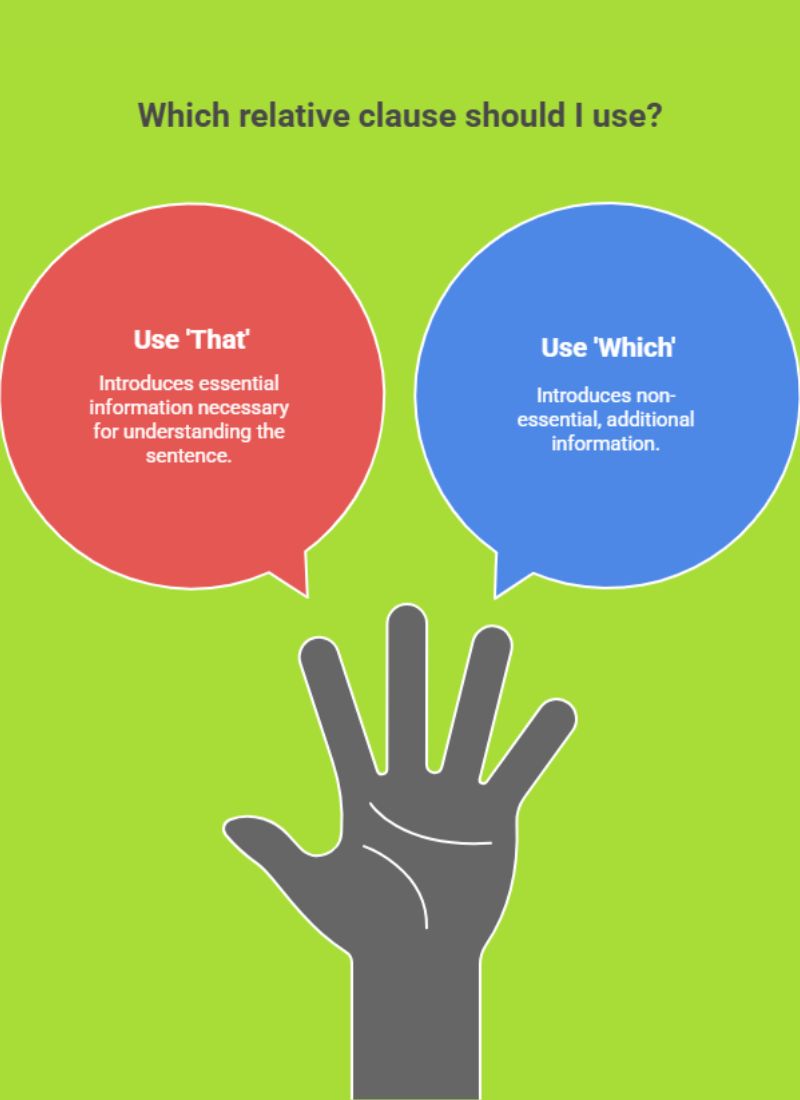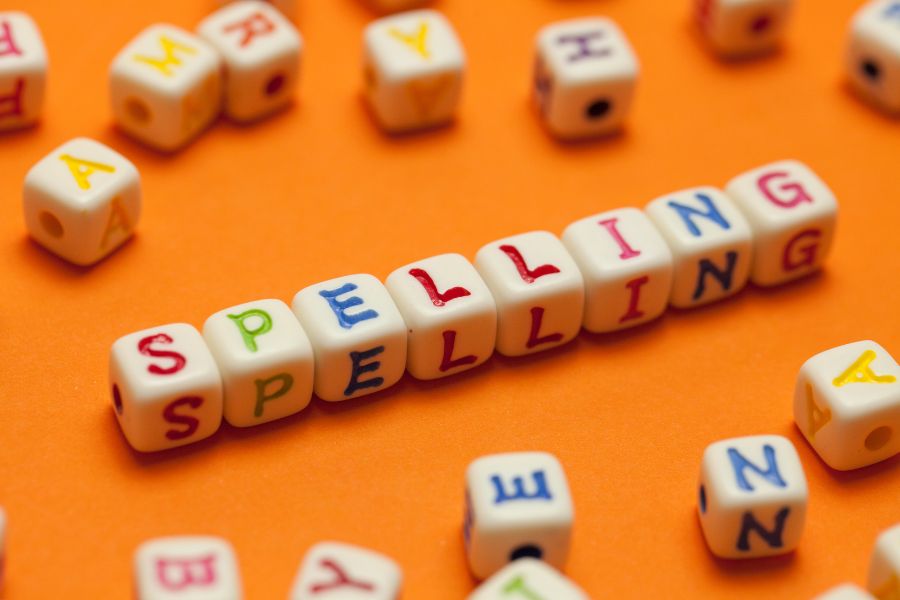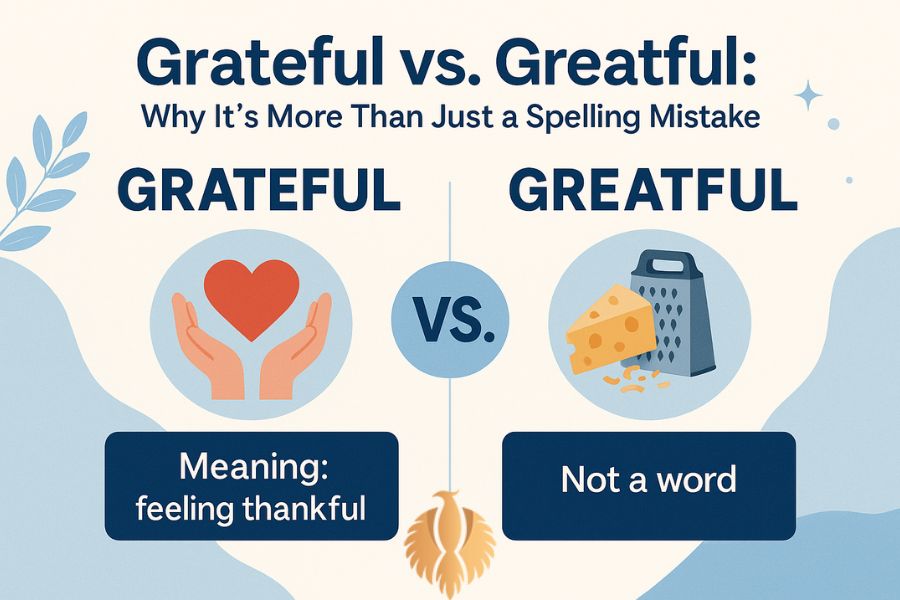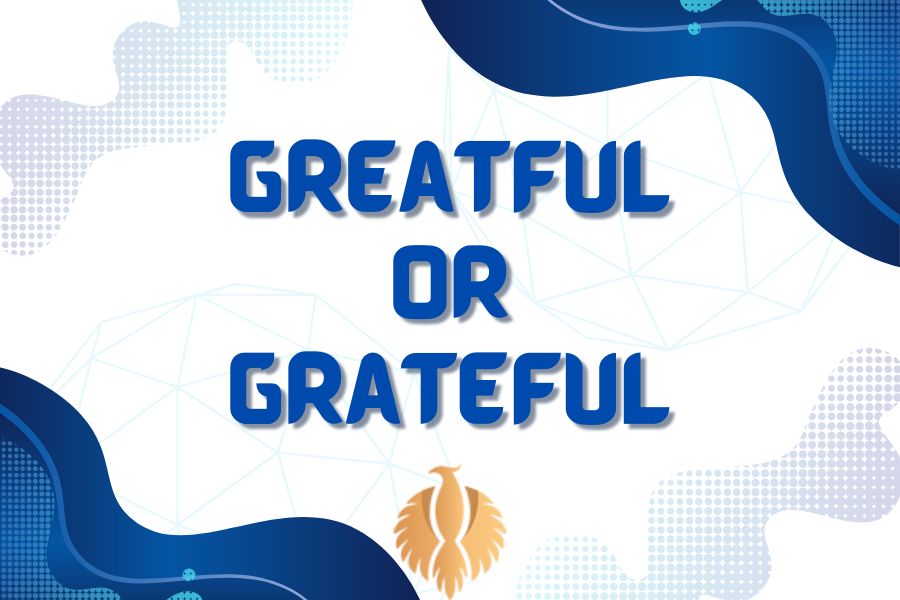So is it greatful or grateful? The correct spelling is grateful, not “greatful.” Although “greatful” and “grateful” sound alike, they don’t have the same meaning. “Grateful” stems from the Latin word gratus, meaning “thankful” or “pleasing.” If you’re expressing appreciation, always choose grateful, and remember, the word “greatful” doesn’t even exist in the English language.
You’ve probably seen both “greatful” and “grateful” floating around and wondered which one is actually right.
It’s an easy mistake.
After all, when we feel thankful, everything can seem pretty great.
But here’s the truth: despite sounding similar, only one spelling is correct, and it has nothing to do with “greatness” at all.
“Grateful” traces its roots back to the Latin word gratus, meaning “pleasing” or “thankful,” and has carried that warm, appreciative feeling into modern English.
In this guide, we’ll clear up the confusion once and for all.
You’ll learn exactly why “greatful” is wrong, how to remember the proper spelling without second-guessing yourself, and you’ll also get thousands of real-life examples to cement the word firmly in your mind.
Let’s make sure you never mix them up again!
You Might Also Enjoy: Are vs Is Correct usage + Examples [2025 Update]
Why “Grateful” Often Gets Misspelled

Before getting to the spelling and usage, let’s see what grateful actually means.
According to the Longman dictionary, grateful means: feeling that you want to thank someone because of something kind that they have done, or showing this feeling.
The reason why grateful seems a bit odd next to greatful, which is not even a word is that the word ‘grate’ means to rub cheese, vegetables etc against a rough or sharp surface in order to break them into small pieces.
And this has nothing to do with gratitude whatsoever!
If you’ve ever hesitated over whether to write “grateful” or “greatful,” you’re not alone, and honestly, you’re not to blame.
At first glance, spelling it “greatful” seems almost logical.
After all, when we feel thankful, don’t we often feel that life itself is, well, great?
The association is so immediate, so natural, that many people—native speakers included—make the mistake without even realizing it.
The confusion isn’t just a random slip-up.
It’s tied deeply to the way our brains handle language.
We recognize familiar pieces like “great,” attach their meaning to nearby ideas, and, without a second thought, carry them over into new contexts.
It’s a kind of linguistic shortcut: because “great” is such a positive word and gratitude is a positive feeling, our minds stitch the two concepts together, even when the spelling rules don’t back it up.
Adding to the problem is the way English often builds words by stacking familiar parts.
Think about “wonderful,” “beautiful,” or “colorful.” Given those patterns, “greatful” feels like it should fit right in.
It looks reasonable; it sounds convincing.
And so, our spelling habits lean into the mistake, reinforcing it over time.
Autocorrect doesn’t always save us either.
If you’re typing fast, whether it’s a text, an email, or a quick social media post, your device might not flag “greatful” at all.
Unlike glaring errors that look obviously wrong, “greatful” visually passes as “close enough,” which lets it sneak by unnoticed.
But here’s the real heart of the matter: “grateful” has nothing to do with “greatness.”
It has no roots in the word “great” whatsoever.
Instead, “grateful” traces back to the Latin word gratus, meaning “pleasing” or “thankful.”
Over the centuries, that root grew and shifted, eventually becoming “grateful”, a word that carries the quiet spirit of appreciation, not any notion of size, grandeur, or greatness.
It is not about feeling great; it is about feeling thankful.
And knowing this little piece of history matters more than you might expect.
Once you realize that “grateful” is rooted in gratitude, not greatness, you can start to recognize the true logic behind the spelling.
No more second-guessing. No more spelling mistakes sliding by.
And, best of all, no more wondering if you’re getting it right every time you want to say thanks.
You Might Also Enjoy: Cancelled or Canceled; Spelling; Examples [2025]
The Correct Spelling: Grateful

When it comes down to it, there’s no debate: grateful is the only correct spelling.
No matter how tempting “greatful” might look or feel, it’s simply not recognized as a proper word in English.
Dictionaries, style guides, grammar books, they all agree unanimously.
If you’re trying to express a feeling of thankfulness, appreciation, or heartfelt acknowledgment, “grateful” is your word.
But knowing what is correct isn’t always enough.
To really internalize the right spelling, it helps to understand why it’s spelled that way.
Unlike many English words that evolved through casual usage or got twisted by time and pronunciation changes, “grateful” has a fairly clean lineage.
It traces directly back to the Latin adjective gratus, meaning “pleasing,” “agreeable,” or “thankful.”
From Latin, it moved into Middle English as “grate,” keeping its core meaning intact.
Later, the “-ful” suffix was attached, emphasizing the state of being full of gratitude.
Notice something important here: at no point in its history does “great” enter the picture.
“Great” comes from an entirely different root related to size, magnitude, and power, not feelings of thanks.
The two words only happen to sound similar in modern English, which creates confusion. But etymologically, they live in separate worlds.
It’s a logical construction when you see its original parts.
You’re not full of greatness, you’re full of gratitude.
That distinction, subtle but crucial, makes all the difference.
Moreover, once you embed the correct meaning in your mind, spelling “grateful” correctly becomes automatic.
If you’re thinking about feeling blessed, appreciative, or deeply thankful, “grateful” should be your immediate go-to; not “greatful,” no matter how tempting it might be to tie it to the “great” things in life.
Every major English authority—from Merriam-Webster to the Oxford English Dictionary—lists “grateful” as the correct and only accepted spelling.
“Greatful,” on the other hand, simply doesn’t appear unless someone is highlighting it as a common mistake.
It literally does not exist in the English language.
So, if you’re ever in doubt, remember: gratitude, not greatness, guides the spelling.
Knowing this doesn’t just help you avoid typos.
It also helps you sound more polished, professional, and credible whenever you write.
And in today’s fast-paced world where every word counts, spelling “grateful” correctly sends a small but powerful message: you care about getting it right and sounding professional.
You Might Also Enjoy: That vs Which | Correct Usage + 2025 Examples
Grateful vs. Greatful: Why It’s More Than Just a Spelling Mistake

Sure, typos happen. Everybody slips sometimes.
But when someone writes “greatful” instead of “grateful,” the mistake runs deeper than just a few misplaced letters.
It taps into something more meaningful: the way we connect words to emotions, and how we understand the very nature of gratitude itself.
At first glance, the error seems harmless.
After all, “great” and “grateful” both sound upbeat, positive, full of light.
They feel related, at least phonetically. But under the surface, they couldn’t be more different.
Gratitude isn’t about feeling “great” in the way we usually mean, it’s not about being powerful, successful, or extraordinary.
It’s about something much quieter, much more rooted.
True gratitude is noticing the small things: the morning sunlight, a stranger’s smile, the comfort of familiar voices.
It’s the soft heartbeat of appreciation that doesn’t need to be loud to be real.
When you replace “grateful” with “greatful,” even unintentionally, you steer the meaning toward grandiosity, toward size, scale, spectacle.
And that’s not what gratitude is about. Gratitude doesn’t demand attention.
It lingers in the background, steady and sure.
That’s why spelling matters. It’s not just a technicality; it’s a mirror of meaning.
“Grateful” carries with it a spirit of humility, of acknowledgment without fanfare.
Choosing the right spelling isn’t simply about obeying language rules, it’s about honoring the true weight of the word.
It’s about understanding that gratitude is enough on its own, without needing to be dressed up as something “great.”
Language is powerful.
Tiny choices in words, sometimes even a single letter, shape how we think and what we feel.
Over time, careless slips like “greatful” could even alter the way we frame emotions in our minds, pulling gratitude away from its quiet origins and tying it to something flashier and less grounded.
And in a noisy world obsessed with big wins and bigger impressions, protecting the softer virtues matters more than ever.
Mistakes will happen. That’s part of being human.
But recognizing the deeper why behind “grateful” gives the word roots in your memory.
It stops being just a spelling issue and becomes something you feel.
And once you feel it, you’ll never spell it wrong again.
You Might Also Enjoy: Leaves vs. Leafs: Differences + Examples
Examples
- Some days, all I can say is: I’m grateful. For what? Honestly, for still being here.
- She’s grateful for slow mornings, burnt toast, the neighbor’s cat meowing at her door, and silly little things that somehow stitch the days together.
- When everything crashed, he wasn’t grateful for the fall. But he was grateful for who he became when he finally got back up.
- You don’t need grand gestures to feel grateful. Sometimes, one laugh with an old friend is enough.
- I’m grateful for the hurt, too. Because it taught me what real healing looks like.
- She looked around the empty apartment, boxes everywhere, and felt strangely grateful for new beginnings wrapped in cardboard.
- After losing everything he thought he needed, he realized he was grateful for the emptiness—it gave him room to breathe.
- Grateful for the job? Of course. Grateful for the coffee breaks and bad jokes that made it bearable? Even more.
- Some nights, all I’m grateful for is the quiet, the kind that says, you survived today. That’s enough.
- It’s easy to be grateful for the sunny days. Learning to be grateful for the storms? That’s where the real magic lives.
- No fancy words needed. Just this: I’m grateful for you.
- She felt grateful for the apology that never came. Somehow, it freed her more than hearing the words ever could.
- Grateful doesn’t mean “settling.” It means you recognize beauty even when it’s imperfect, even when it’s late, even when it hurts.
- I’m not grateful life got easier. I’m grateful I got stronger.
- We think we need more to be grateful. Truth is, the less I have, the more clearly I see what actually matters.
- He whispered “thank you” into the dark, to no one in particular, grateful just to have made it through another messy, beautiful day.
- Grateful for the mistakes? Absolutely. They broke me open in ways success never could.
- I’m grateful for the ones who stayed—and even more for the ones who didn’t. Some things just aren’t meant to be.
- Some mornings, gratitude looks like making bad coffee, burning the toast, and laughing anyway.
- She’s grateful for second chances, third chances, even the ones she gave herself when no one else would.
- Grateful for my weirdness. Grateful for yours. Grateful we found each other in this messy world.
- I thought gratitude would feel huge, obvious, fireworks-level. Turns out, it feels like a quiet hand on your back when you think you’re alone.
- He’s grateful for the hard conversations, the awkward silences, the slammed doors—because real love lived underneath all of it.
- Some days I’m grateful for the things that didn’t happen. The jobs I didn’t get. The people who didn’t stay. Bullet dodged.
- She ran through the rain, soaked to the bone, laughing like a kid. Grateful she didn’t cancel the walk just because the sky was angry.
- We spend so much time chasing more that we forget to be grateful for enough.
- I’m grateful for every scar, every stupid mistake, every detour. They all led me somewhere worth being.
- You don’t have to wait for Thanksgiving to be grateful. You can start right now, wherever you are, however messy your life looks.
- He’s grateful not for the perfect days, but for the ones he fought for—the ones he earned inch by inch.
- And me? I’m just grateful you’re reading this. Grateful for these small connections that remind us we’re not alone.

Hi, welcome to my blog! My name is Omid and I am thrilled to have you here! I am an English language teacher with 12 years of experience and hold multiple international certifications (TESOL, IELTS, TOEFL, PTE, CELTA). Additionally, I hold a PhD in Applied Linguistics with a specialization in Teaching English as a Second Language (TESL), which fuels my passion for teaching English and assisting others in mastering the language. To me, nothing is more rewarding than helping individuals enhance their English language abilities through various methods. So, let’s embark on this journey of learning English together.




